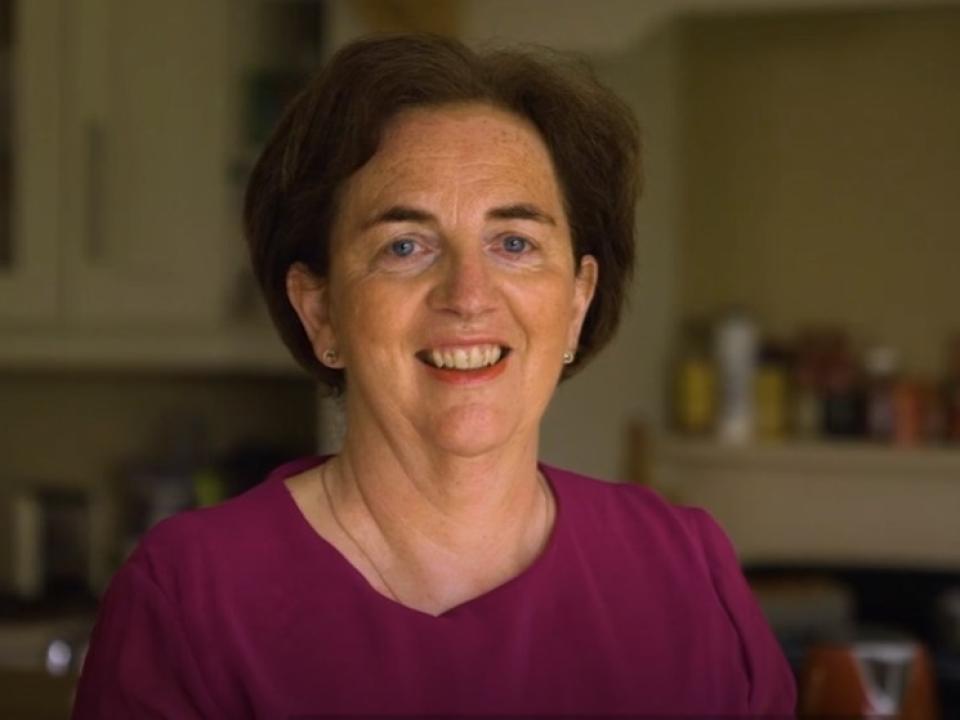
In 2017, Siobhan Hayes was diagnosed with endometrial cancer – a cancer that forms in the endometrium in the lining of the uterus. “I had felt tired the previous weeks, even months, but I put that down to being busy and a hectic work schedule. Then sudden heavy bleeding prompted me to go to the Emergency Department, and that’s where my cancer journey began. My diagnosis was a huge shock to me and my family. It came totally out of the blue.”
Following her diagnosis, Siobhan said she went straight to her local cancer support centre in Portlaoise. “Almost as soon as I got the diagnosis, I left the consultants room and I just found myself driving straight to that support centre because I knew I needed that support to process what was going on. The centre was a safe space for me to talk, to cry, to laugh, to meet others like me on the cancer road. Over the next few months and especially in recovery from treatment I embraced all the lovely care and classes and exercise programmes I could get to.
I loved the Thrive and Survive course, and eventually went on to train as a co-presenter of the course. The staff were just so supportive, I can’t thank them enough.” Siobhan’s cancer support centre offers a range of services, including free counselling to people affected by cancer. It is one of 24 cancer support centres around the country that receives funding for its free counselling services by the Irish Cancer Society.
“A big challenge for me was the waiting. The waiting around, I found anyway, much worse than the actual treatment I went through."
One aspect of her cancer experience Siobhan has been keen to highlight and talk about is the waiting. “A big challenge for me was the waiting. The waiting around, I found anyway, much worse than the actual treatment I went through. I was waiting in hospitals, I was waiting for tests, waiting for results, waiting for your treatment plan, waiting to start your treatment, waiting in queues, waiting in traffic on my way to treatment and on the way home again, waiting on my hair to fall out, waiting on a friend or family to call around to my house to cheer me up, waiting for the minutes to tick by going through my radiation and chemo sessions, waiting for more test results to see if the treatment worked, waiting to get my energy back, waiting for good news and waiting to feel better and normal again. A lot of waiting.”
“Going through cancer was a time in my life where I felt everyone was on my side. It took some adjustment for me then when my hair grew back, I was looking back to normal, I felt people very quickly moved on from checking in on you and they moved on. But I needed time to recover and move on. Gradually, you learn to live with your new normal which got better day by day and month by month.”
“I won’t stop caring or having empathy or listening to the stories of others I meet that are on the cancer road after me."
Siobhan got involved with the Irish Cancer Society as an Advocacy Champion because she saw and experienced gaps in the health service she wanted to help highlight and address. “I was so grateful to be alive and so grateful to the surgeon and all the wonderful people who had helped me along this cancer journey. I also saw gaps in services. I also wanted to do something new and different. I thought that if I could influence even one politician who in turn might influence the decision makers in Dublin, then the power of people working together might know no bounds.”
Asked what she won’t stop doing for people affected by cancer, Siobhan says: “I won’t stop caring or having empathy or listening to the stories of others I meet that are on the cancer road after me. I will do what I can do to help the Irish Cancer Society highlight issues and advocate for positive change.”
The Irish Cancer Society has long highlighted the lack of adequate funding in the 2017-2026 National Cancer Strategy, which has only received the required levels of funding in two out of seven Government Budgets so far. Siobhan explains that she was due to have surgery at the time the Strategy was published in July 2017 and she wrote the below poem back then:

I'm the latest statistic
cancer strategy take note
My life, my family hit with a jolt
Where did this cancer come from
when will it go?
Wish I had the answers
of such questions so.
Minister for health
Keep the strategy off the shelf
Don't under estimate the influence
You have by yourself.
I was a professional,
now I'm a patient too.
I will depend on this strategy,
the health care system
The medics, and nurses
and teams and teams behind teams
And government teams and
You Minister, and decisions that you make
and with this strategy what will you do?
I am just one of many more.
